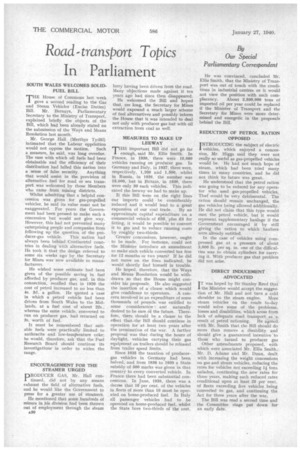Road Needs an All-round Square Deal .
Page 32

If you've noticed an error in this article please click here to report it so we can fix it.
the commercial-motor industry. the square deal must be an allround square deal, said Mr. Francis Grundy, at a Manchester Chamber of Commerce meeting on Wednesday of last week, when Lord Stamp gave an address on "A Square Deal for the Railways." The Manchester Chamber, said Mr, Grundy, was unanimously of the opinion that an early clarification of national policy, regarding internaltransport arrangements, was essential, so it was decided to hold a number of meetings, to be addressed by spokesmen of the railways and other interests. The supreme interest to be considered was not rail or road alone, but the well-being of the country's industries. Bodies like the Manchester Chamber could never agree to this question being considered behind closed doors. It would be a fatal mistake if they left consideration of the policy to transport experts, for the settlement might have a lasting effect on industrial efficiency.
The railways main objective was speeding-up the .establishing of disciplinary control of rates for all forms of transport, said Lord Stamp. They had never taken the view that transport should be free in all directions and would take their share in restrictions.
The speed with which the schedule of road rates could be regulated was slow, whereas the railway deterioration was rapid. The railways wanted freedom to arrest that deterioration and they were willing to be directed, by statute, to impose only reasonable charges. Any trader who was aggrieved by the rate, and thought it unreasonable, could bring it before a conference. That would be arranged with the various industries. They pleaded great urgency, but did not allege that they had suddenly lost a great deal of traffic. Losses had been going' on for years, and all European railways were either run by the State at a deficit or openly subsidized. The British railways did not desire to 'join them, nor did they thinkthat, with a square deal, this would he necessary.




















































































